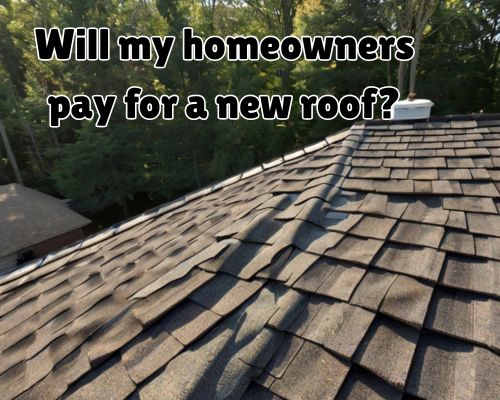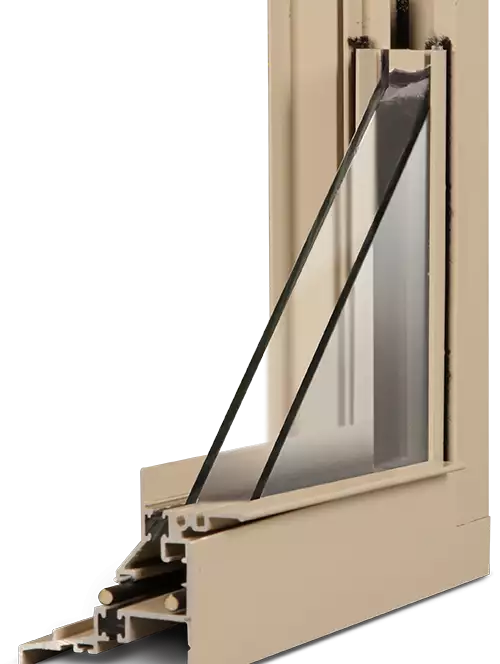If you’re a homeowner in New Jersey, the question, “Will my homeowners insurance pay for a new roof?” may be lingering in the back of your mind—especially if your roof has sustained damage or is simply showing its age. With rising roofing costs and unpredictable weather across the Garden State, understanding how homeowners insurance interacts with roof replacement is not just smart—it’s financially essential.

Let’s unpack this question in detail and explore how local climate, policy specifics, insurance adjusters, and roofing contractors in New Jersey all play a role in getting your roof paid for—without draining your wallet.
Understanding Homeowners Insurance Coverage for Roofs in NJ
The first thing to understand is that homeowners insurance typically covers roof damage caused by “sudden and accidental” events. This includes:
- Wind damage (common during Nor’easters and thunderstorms in NJ)
- Hail storms
- Fallen trees
- Fire
- Vandalism
In New Jersey, strong winds from Atlantic storms can wreak havoc on roofing systems, particularly asphalt shingles, which are widely used across Middlesex County, Bergen County, and Ocean County. If your damage aligns with a “covered peril,” your insurance provider may pay for partial or full roof replacement.
Covered vs. Uncovered Roof Damage
However, insurance doesn’t cover normal wear and tear or damage caused by neglect. For example:
- An old, leaking roof due to age (over 20 years old)
- Moss or algae deterioration
- Improper installation by past roofers
Insurers often send an adjuster to determine whether your claim is valid. If your roof was well-maintained, you’re more likely to get a claim approval.
How New Jersey Weather Affects Roof Insurance Claims
New Jersey’s coastal climate—with its hot summers, cold winters, and storm-prone springs—places unique stress on roofing systems. Many homeowners in Monmouth County and Atlantic County experience roofing issues due to ice dams, which can lead to structural damage.
If a storm ripped shingles off your roof in Trenton or Newark, and that led to interior water damage, your insurer might approve not just the roof repair but interior remediation costs too.
🌀 Tip: Be sure to document the storm damage with photos and timestamped evidence. Weather reports from local meteorological services can strengthen your claim.
LSI Keywords & Their Importance in the Insurance Process
To make the most out of your claim, you’ll need to familiarize yourself with related industry terms. These LSI (Latent Semantic Indexing) keywords help you understand what professionals and insurers look for. Here are some to know:
- Roof depreciation
- Actual cash value (ACV) vs. replacement cost value (RCV)
- Roof insurance adjuster
- Roofing contractor estimates
- Roof lifespan (especially for asphalt vs. metal vs. tile)
- New roof deductible
- Full roof replacement coverage
- Roofing warranties
Understanding these concepts can help you ask the right questions when dealing with your insurance company or a licensed roofing contractor in New Jersey.
When Will Homeowners Insurance Pay for a Full Roof Replacement?
Insurance may pay for a full roof replacement under specific conditions:
- Storm Damage: If wind or hail destroys a large portion of the roofing system.
- Roof Compromise: If water has infiltrated the interior through the damaged section.
- Matching Laws: In some NJ municipalities, if part of your roof is replaced, building codes require that the entire roof be uniform. Insurers may then cover full replacement to meet local code compliance.
Example: In Cherry Hill, if a hailstorm damages 40% of the shingles and matching replacement shingles are no longer available, the insurer may approve complete reroofing to ensure material consistency.
Factors That Could Affect Insurance Payouts in New Jersey
Several factors determine whether your insurer will pay for a new roof:
- Roof Age: Roofs over 20 years old may not be covered under RCV terms.
- Material Type: Asphalt roofs have shorter lifespans than metal or slate roofs.
- Policy Type: ACV policies deduct depreciation; RCV policies cover the full cost after deductible.
- Documentation: Proof of routine roof inspections and maintenance records matter.
If your home in Princeton has a 12-year-old asphalt roof and a branch crashed through it during a recent storm, chances are good your insurer will approve the claim.
Steps to Take Before Filing a Roof Insurance Claim in NJ
- Get a Roof Inspection: Hire a certified roofing contractor in NJ to inspect and document the damage. Many offer free inspections and written estimates.
- Review Your Policy: Understand what’s covered, your deductible, and whether you have ACV or RCV coverage.
- File Promptly: Insurance companies in NJ often require claims to be filed within a short time frame after the incident—sometimes as short as 30 days.
- Request an Adjuster Visit: Be present during the inspection, or have your roofer meet the adjuster.
- Negotiate if Needed: If your claim is undervalued or denied, consider getting a public adjuster or legal help.
Finding a Trustworthy Roofing Contractor in New Jersey
When seeking roof replacement, you want a licensed, insured, and locally reputable roofing contractor. Look for companies with experience dealing directly with insurance providers. Reviews from platforms like HomeAdvisor, Angi, and the Better Business Bureau (BBB) of New Jersey can guide you.
Ask your roofer:
- Are you familiar with New Jersey building codes?
- Do you provide insurance claim assistance?
- Can you offer references in my area (e.g., Jersey City, Hoboken, or Toms River)?
Final Thoughts: So, Will Your Homeowners Insurance Pay?
The short answer? It depends—but often yes, if the damage is sudden, storm-related, and well documented.
In New Jersey, with its blend of coastal exposure and seasonal shifts, roof damage is not uncommon. If your home was affected by wind, hail, or a fallen tree, your homeowners policy may very well cover the cost of a new roof—as long as you move quickly, document everything, and work with professionals who understand the local landscape.
Key Takeaways
✅ Homeowners insurance typically covers storm damage and accidental roof issues.
✅ New Jersey’s climate increases the likelihood of qualifying roof damage.
✅ Understanding your policy (ACV vs. RCV) is critical.
✅ Proper documentation and working with a reputable local roofing contractor improves your chances.
✅ Stay informed, act quickly, and be persistent—many NJ homeowners get their roof replaced with little to no out-of-pocket cost beyond their deductible.
Still wondering “Will my homeowners pay for a new roof?” in New Jersey? Don’t guess. Take action. Get your roof inspected today and protect your biggest investment before the next storm rolls in.
Need help fast? Contact a certified roofing professional near you for a free quote and insurance claim guidance tailored to New Jersey homeowners.
